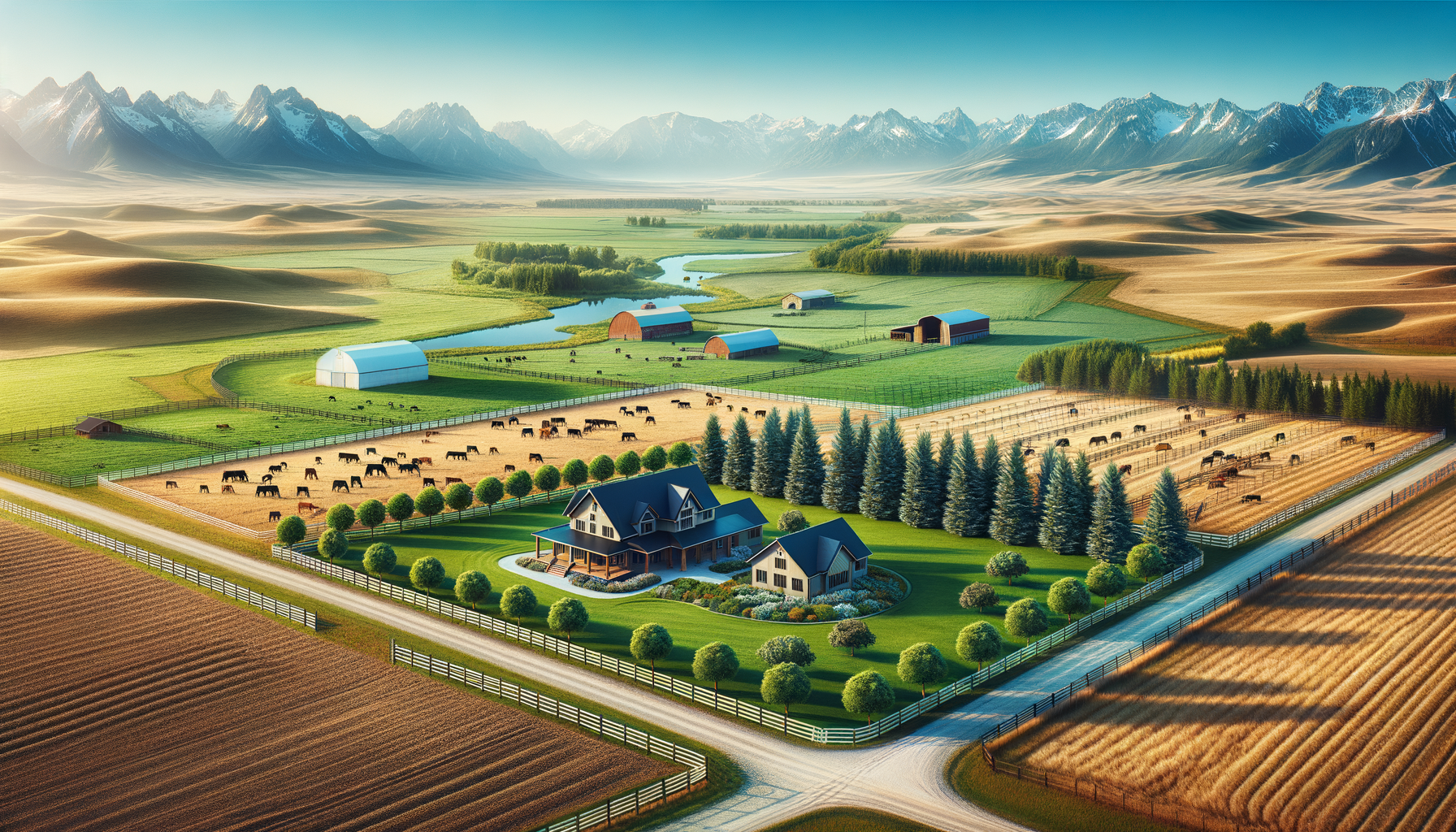
Understanding the Ranch Real Estate Market in 2025
Introduction to Ranch Real Estate
Ranches have long been a symbol of freedom, space, and a connection to nature. In 2025, the allure of ranches is stronger than ever as more people seek to escape the hustle and bustle of urban life. The demand for ranches is driven by a combination of factors, including the rise of remote work, a growing interest in sustainable living, and a desire for more personal space. This article delves into the current trends and factors influencing the ranch real estate market, providing potential buyers with valuable insights.
Current Trends in the Ranch Market
The ranch market in 2025 is characterized by several key trends. Firstly, there is an increased interest in sustainable and eco-friendly living. Many buyers are looking for properties that allow them to live off the grid or reduce their carbon footprint. Additionally, the trend towards remote work has expanded the potential buyer pool, as individuals are no longer tied to living near urban centers.
Another significant trend is the diversification of ranch uses. Buyers are not only interested in traditional cattle ranching but are also exploring opportunities for agritourism, recreational activities, and conservation projects. This diversification is opening up new revenue streams for ranch owners and making these properties more attractive investments.
Moreover, the ranch market is experiencing a technological transformation. Smart farming technologies and drones are becoming more common, helping ranchers manage their land more efficiently. This technological integration is appealing to younger buyers who are tech-savvy and interested in modernizing traditional practices.
Factors Influencing Ranch Prices
Several factors are influencing the pricing of ranches in 2025. Location remains a critical determinant, with ranches located near desirable amenities or natural attractions commanding higher prices. Proximity to urban areas can also affect value, as it provides easier access to services and markets.
The size and quality of the land are also crucial. Larger ranches with fertile soil and abundant water sources are generally more valuable. Additionally, properties with existing infrastructure, such as barns, fences, and water systems, can be more appealing to buyers looking to start operations quickly.
Market conditions and economic factors, such as interest rates and agricultural commodity prices, also play a role in determining ranch prices. Buyers should be aware of these variables and consider how they might impact the long-term value of their investment.
Challenges in Buying a Ranch
Purchasing a ranch is a significant investment that comes with its own set of challenges. One of the primary challenges is understanding the complexities of land management. Prospective buyers need to be prepared to manage large tracts of land, which can involve everything from maintaining fences to managing livestock and crops.
Another challenge is financing. Ranches can be expensive, and securing financing can be more complex than traditional home loans. Buyers may need to explore specialized agricultural loans or work with lenders experienced in rural properties.
Additionally, buyers must consider the regulatory environment. Zoning laws, water rights, and environmental regulations can all impact how a ranch can be used. It’s essential to conduct thorough due diligence and consult with experts to navigate these legal considerations successfully.
Conclusion: The Future of Ranch Real Estate
As we move further into 2025, the ranch real estate market continues to evolve. With an increasing interest in sustainable living and the flexibility offered by remote work, ranches remain a compelling option for many buyers. However, potential buyers must be prepared to navigate the challenges associated with purchasing and managing a ranch. By understanding current trends, pricing factors, and potential obstacles, buyers can make informed decisions and find a property that meets their needs and aspirations.
Ultimately, the ranch market offers a unique blend of lifestyle and investment opportunities, making it an exciting sector within the real estate industry. Whether for personal enjoyment, agricultural pursuits, or conservation efforts, ranches provide a chance to connect with nature and enjoy a more self-sufficient way of life.